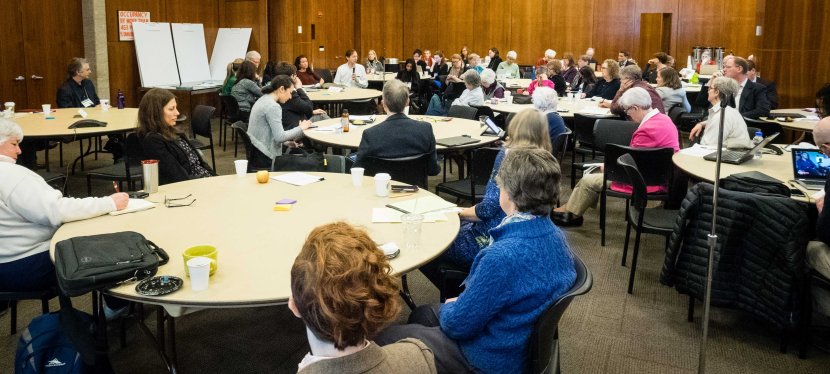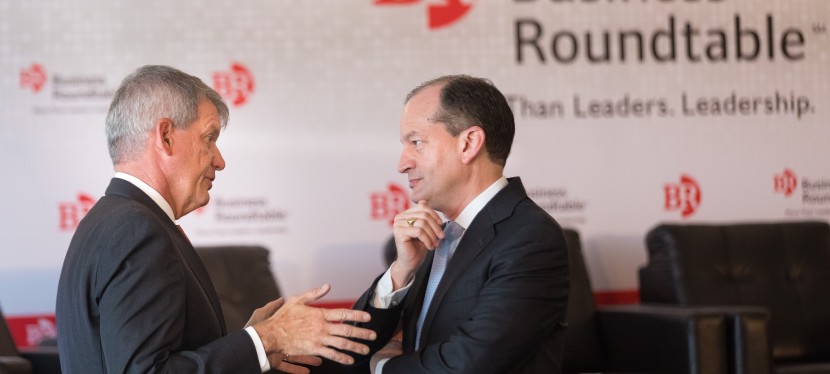As part of our series on remembering Fr. Mike Crosby and Celebrating 50 years of SGI, we wanted to highlight the histories and growth of all of the CRIs.

The Socially Responsible Investment Coalition (SRIC) began as a dream of Sr. Francis Lorene Lange CDP in 1974. She believed that a Coalition for Responsible Investment (CRI) could be started in this region. She had worked with Fr. Mike Crosby OFM Cap to found a Texas group to work with Interfaith Center on Corporate Responsibility (ICCR). The seed was planted but did not sprout until 1982.
Texas CRI was founded in 1982 with a number of religious congregations: Congregation of Divine Providence, Missionary Catechists of Divine Providence, School Sisters of Notre Dame, Sisters of Charity of the Incarnate Word—San Antonio, Texas, Missionary Oblates of Mary Immaculate, Sisters of the Sacred Heart of Jesus, Benedictine Sisters—Boerne, Texas, The Society of St. Teresa of Jesus, Sisters of Charity of the Incarnate Word—Houston, Texas, and Congregation of the Holy Spirit. By 1997, Texas CRI officially changed its name to the Socially Responsible Investment Coalition (SRIC). Since that time, SRIC has grown to 19 Institutional and Associate members and a number of individual members. We continue to work to bring about responsible corporate behavior through the power of shareholder resolutions as well as corporate dialogues.
In the early years, members participated in various shareholder initiatives that included the boycott of Campbell’s Soup and Nestlé’s products and actions to end apartheid in South Africa. SRIC members documented working conditions, environmental contamination, and community issues surrounding Maquiladoras located at U.S./Mexico border. Members also raised questions with Houston Industries regarding the safety of the South Texas Nuclear Project and with DuPont and Chevron about their practices and clean-up of uranium mines.
For 40 years, as faith and values–based investors, we have a long history of shareholder advocacy on socially responsible issues as we prompt companies to act on positive outcomes for society. Some of our many SRIC initiatives include: addressing environmental pollution; advocating for state-wide Medicaid expansion; working on sustainable mining issues in Ghana, Colombia and Peru with the Faith Reflections Initiative. We have also worked nationally to generate awareness of human and sex trafficking in hotels during several Super Bowls and have spoken out on negative environmental and health impacts of fracking and methane emissions in oil and gas production. As we look towards the future, we will continue to engage corporations encouraging them to adopt more ethical and sustainable business practices and address their impacts on people and the planet.
Since 1982, SRIC has been a member of Interfaith Center on Corporate Responsibility (ICCR). Currently, we are collaborating with ICCR members to focus on advancing worker justice, human rights, climate crisis, access to medicine, nutrition insecurity, responsible banking and finance, environmental justice and corporate governance
Thank you to Ruben Lopez and Anna Falkenberg for sharing this history with us!
For more information about SRIC, please visit: https://sric-south.org/






